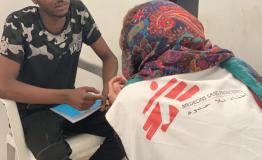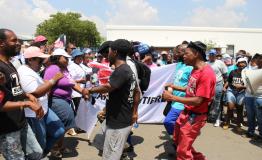

Tuberculosis
Tuberculosis (TB) is a deadly infectious disease.
Every year, over 10 million people develop active TB and 1.6 million die from it.
TB is often thought of as a disease of the past but a recent resurgence and the spread of drug-resistant forms make it very much an issue of the present day and age.
Almost half a million people develop multidrug-resistant strains of the disease every year. Today, TB is one of the three main killer infectious diseases, along with malaria and HIV/AIDS.
TB occurs in every part of the world but over 95 per cent of cases and deaths are in developing countries, according to the World Health Organization.
In 2018, the largest number of new TB cases occurred in the Southeast Asian region (44 per cent), followed by Africa (24 per cent) and the Western Pacific (18 per cent).
Though the global death rate from TB dropped more than 40 per cent in the years between 1990 and 2011, there are still crucial gaps in coverage and severe shortcomings when it comes to diagnostics and care options.
Furthermore, we are currently seeing an alarming rise in cases of drug-resistant and multidrug-resistant tuberculosis (DR-TB and MDR-TB) that do not respond to the customary first-line drugs.
MSF has been fighting TB for over 30 years. We provide treatment for the disease in many different contexts, from chronic conflict situations, such as Sudan, to vulnerable patients in stable settings such as Uzbekistan and the Russian Federation.
In 2018, MSF started 19,400 people on TB treatment, including 2,840 with drug-resistant TB.
About Tuberculosis
TB is caused by a bacterium (Mycobacterium tuberculosis) that is spread through the air when infected people cough or sneeze.
The disease most often affects the lungs but it can infect any part of the body, including the bones and the nervous system.
Most people who are exposed to TB never develop symptoms, since the bacteria can live in an inactive form in the body, but if the immune system weakens, such as in malnourished people, people with HIV or the elderly, TB bacteria can become active.
Five to 15 per cent of people infected with TB will develop active TB and become contagious at some point in their lives.
Symptoms include a persistent cough, fever, weight loss, chest pain and breathlessness in the lead up to death. TB incidence is much higher and is a leading cause of death among people with HIV.
The most widely-used test for diagnosing active TB in developing countries relies on examining a patient’s phlegm under a microscope. This method, developed nearly 140 years ago, detects less than half of all TB cases and largely fails to detect the disease in children and people co-infected with HIV – who usually can’t produce the sputum needed – and those with drug-resistant forms of TB. A diagnostic test, Xpert MTB/RIF, was introduced and we use it in many of our projects, but it can't be used in resource-limited settings.
A course of treatment for uncomplicated TB takes a minimum of six months. Drug-resistant TB (DR-TB) treatment requires taking a cocktail of drugs and can take two years or more, but trials are ongoing to treat it in six to nine months. It is vital that a patient completes their entire course of treatment, even when they start to feel better; incomplete treatment can lead to drug resistance developing. Decentralising treatment by having people cared for at home can help them adhere to treatment and overcome any obstacles they may face.

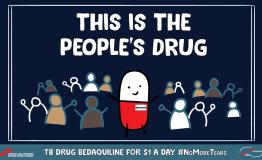
MSF launches global campaign urging Johnson & Johnson to reduce price of life-saving TB drug
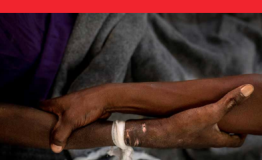
Burden sharing or burden shifting?
![Grâce M’Gazio is a young mother about to give birth. She is doing the HIV – AIDS test with Adeline Ouaboua, psychosocial advisor at the Castors maternity, Central African Republic [© Elisa Fourt/MSF] Grâce M’Gazio is a young mother about to give birth. She is doing the HIV – AIDS test with Adeline Ouaboua, psychosocial advisor at the Castors maternity, Central African Republic [© Elisa Fourt/MSF]](/sites/default/files/styles/card_half/public/msfimages/news/msf243219_medium.jpg?itok=rvrljxRc)
The fight against HIV and TB is at a critical juncture
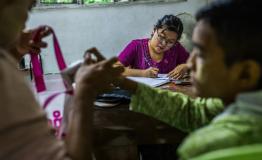
Closure of MSF’s Insein clinic marks milestone for people living with HIV in Myanmar
